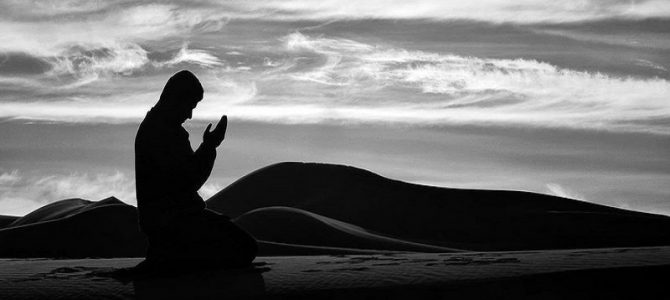Question 009: I am 15 years old and when I was younger I recall missing two isha prayers deliberately as I wasn’t bothered about praying all five prayers. I also missed prayers (all fajr prayers apart from Shahr al Ramadan). How do I make these up and is it permissible for me to make them up? I follow the Shafi method. JazakAllah Khair
Answer 009: Imam Baqir (as) says: Prayer is one of the Pillar of Islam.[1] One who is abandoning his prayer deliberately and without any reason is considered as an unbeliever who defies Allah, according to Imam Sadiq (as).[2]
Prayer cannot be skipped under any circumstances and it is one of the rights of Allah (SWT). If one doesn’t pray he/she has committed a capital sin. Regarding Haqqullah repentance would be to make up for the past and saying Istiqfar. If one repents to Allah (SWT) with sincere repentance! Maybe his Lord will absolve him of his misdeeds.[3]
In the Holy Quran Allah, the Almighty says: “Say [that Allah declares,]” O My servants who have committed excesses against their own souls, do not despair of the mercy of Allah. Indeed Allah will forgive all sins. Indeed He is the All-forgiving, the All-merciful.”[4]
The Arabic version of this verse of the holy Quran:
قُلْ يا عِبادِيَ الَّذينَ أَسْرَفُوا عَلى أَنْفُسِهِمْ لا تَقْنَطُوا مِنْ رَحْمَةِ اللَّهِ إِنَّ اللَّهَ يَغْفِرُ الذُّنُوبَ جَميعاً إِنَّهُ هُوَ الْغَفُورُ الرَّحيم
In view of the fact that you did not say Subh prayer for a year and the two Isha prayers, it becomes compulsory on you to perform Subh qada’ for a year and the two Isha prayers.
It is not incumbent on you to immediately make up for the prayers you missed out, as delaying compensatory prayer can be tolerated, provided it is not done out of indifference.[5]
Considering the above mentioned issues, from now on try to offer your prayers on time and then make up for the prayers you missed, gradually. So, if you repent from that sin and make all your missed prayers up as soon as you can, then Allah (swt) will forgive you. Insha’Allah.
[1] . Barqi, Ahmad bin Muhammad bin Khalid, al-Mahasin, Vol. 1, Pg. 44, Qom, Dar al-Kutub al-Islamiyyah, 1371 A.H.
[2] Sheikh Kuleini, Kafi, Vol. 2, Pg. 279, Tehran, Dar al-Kutub al-Islamiyyah, 1407 A.H.
[3] . Surah al-Tahrim, verse 8.
[4] . Surah al-Zumar, verse 53.
[5] . For further information, please refer to the official Website of the office of Sayyid Sistani (ha), Dialogue on prayer.





